Our History
Why Trekkers Was Started
Trekkers is the result of the community coming together to provide a positive solution to challenges within the community.
Before Trekkers began in 1994, Jack Carpenter, a seasoned youth development professional from Boston, moved to Maine. While here, Jack noticed the need for stronger connections between adults and youth in the state. To address this, he established Youth Forum Maine (YFM). YFM focused on enhancing youth work by providing resources and support. Their core mission was to foster independent projects led by local leaders. This approach became pivotal as in the fall of 1993, Jack Carpenter along with Peter Jenks, a local pastor, identified challenges with youth in the Thomaston community. Together, they appealed to community leaders to come together and provide support. Those leaders included school district representatives, emergency service personnel, and caring adults from the community.
Together, these leaders decided to support teenagers in their community by creating “Thomaston Trekkers,” a volunteer initiative that utilized the outdoors as a place to foster relationships between youth and caring adults. The first-ever trips started in the Spring and Fall of 1994, and were two canoe expeditions which included 11 students from Thomaston Grammar School and 11 adult mentors. Trips were led and organized by volunteers Al and Sue LaPlante.

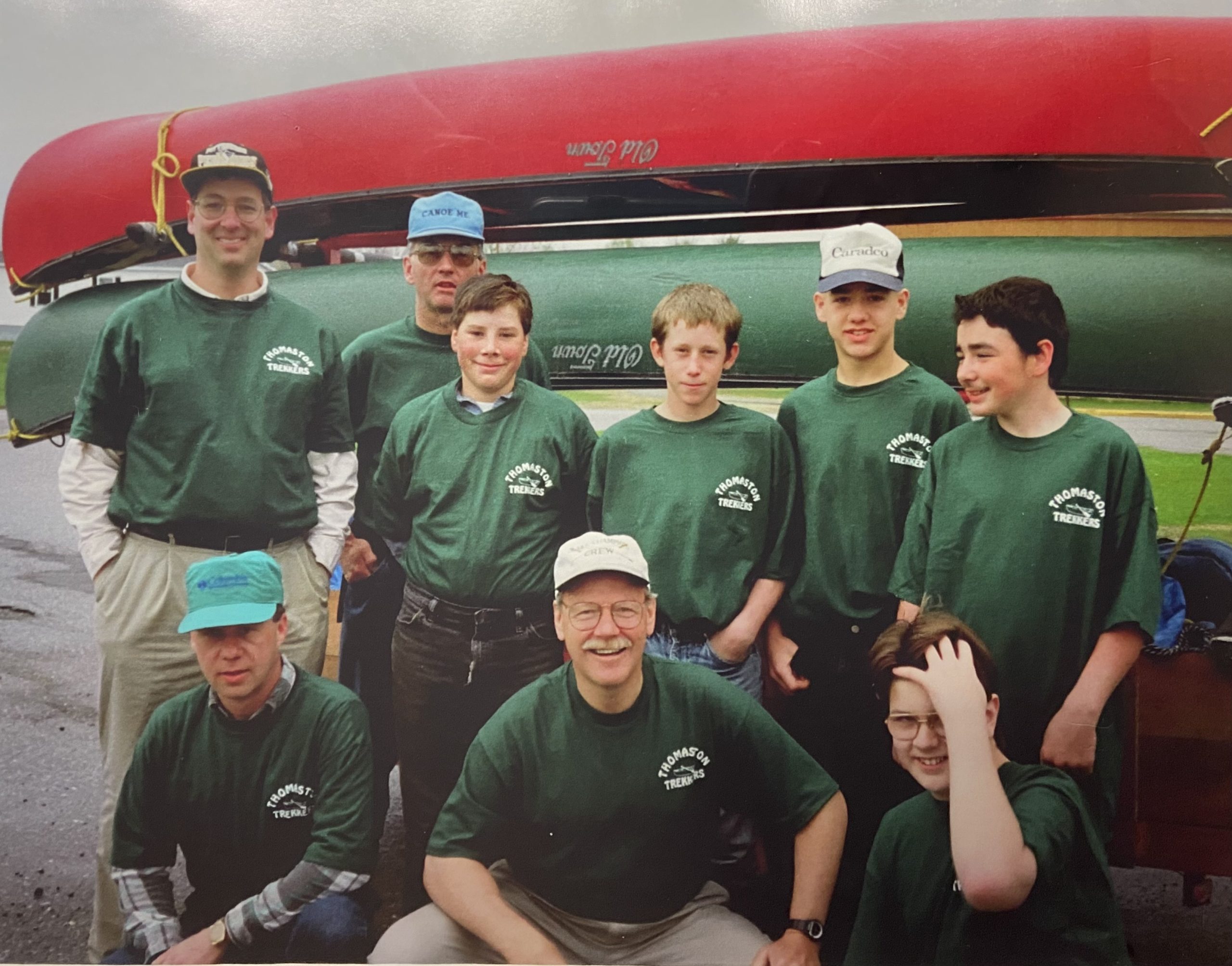
Trekkers’ first-ever boys’ trip, Moose River Bow, Fall 1994.
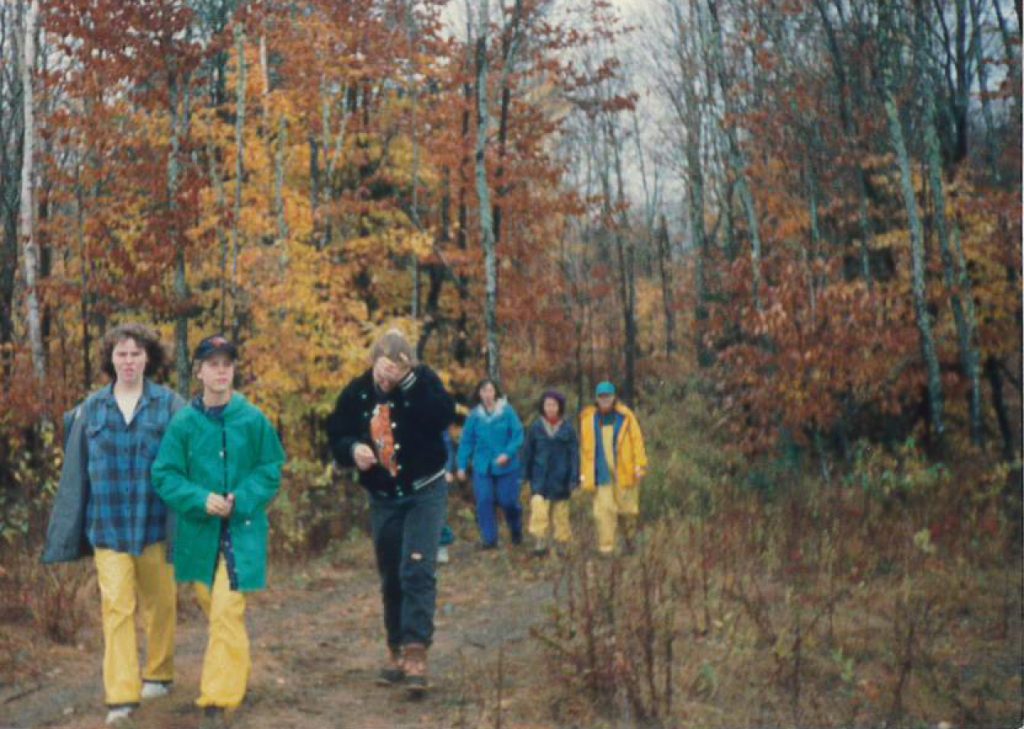
Trekkers’ first ever girls’ trip, Machias Lakes, Spring 1994.
Building the Six Year Model
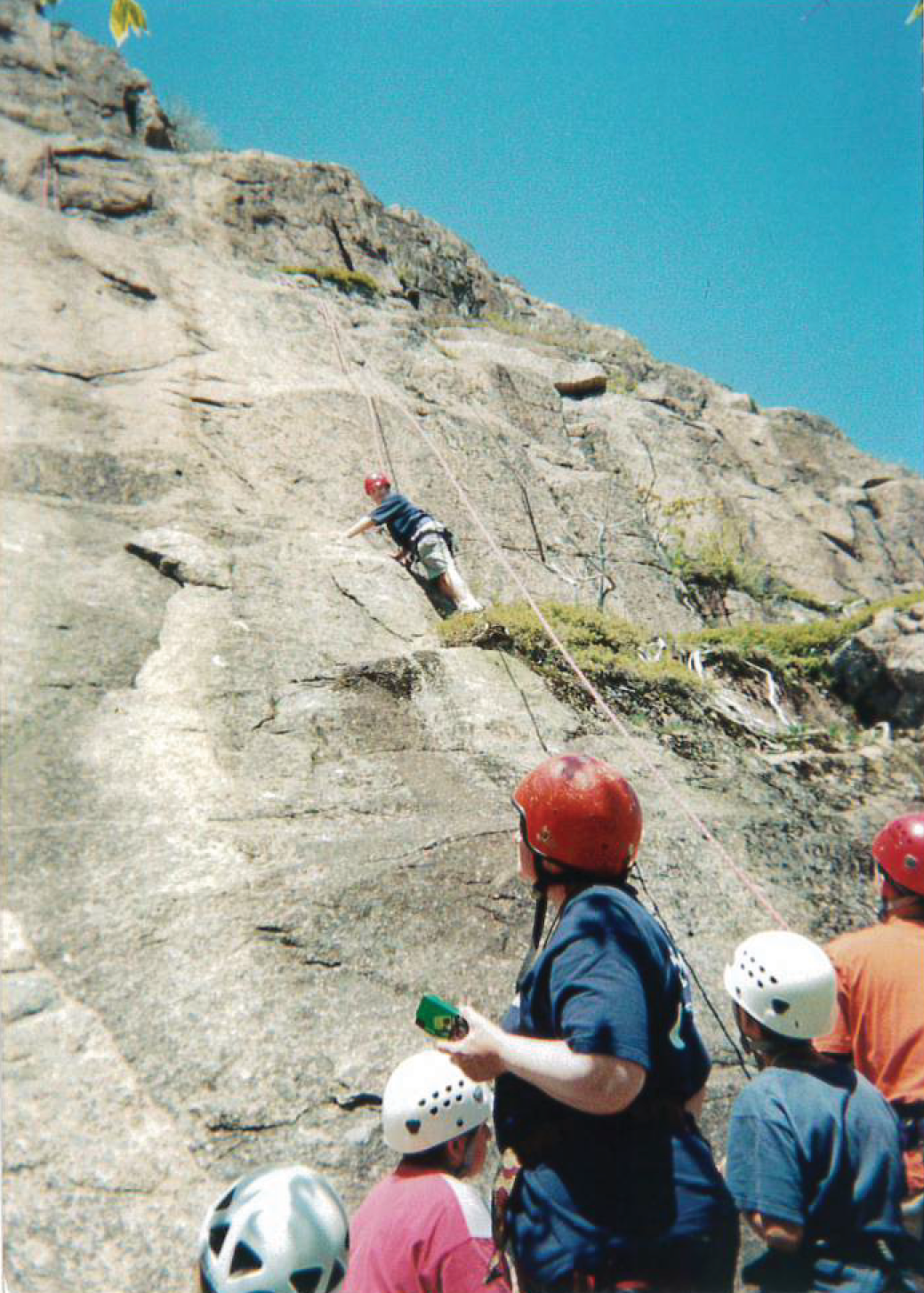
Rock climbing at Acadia National Park, 2000.
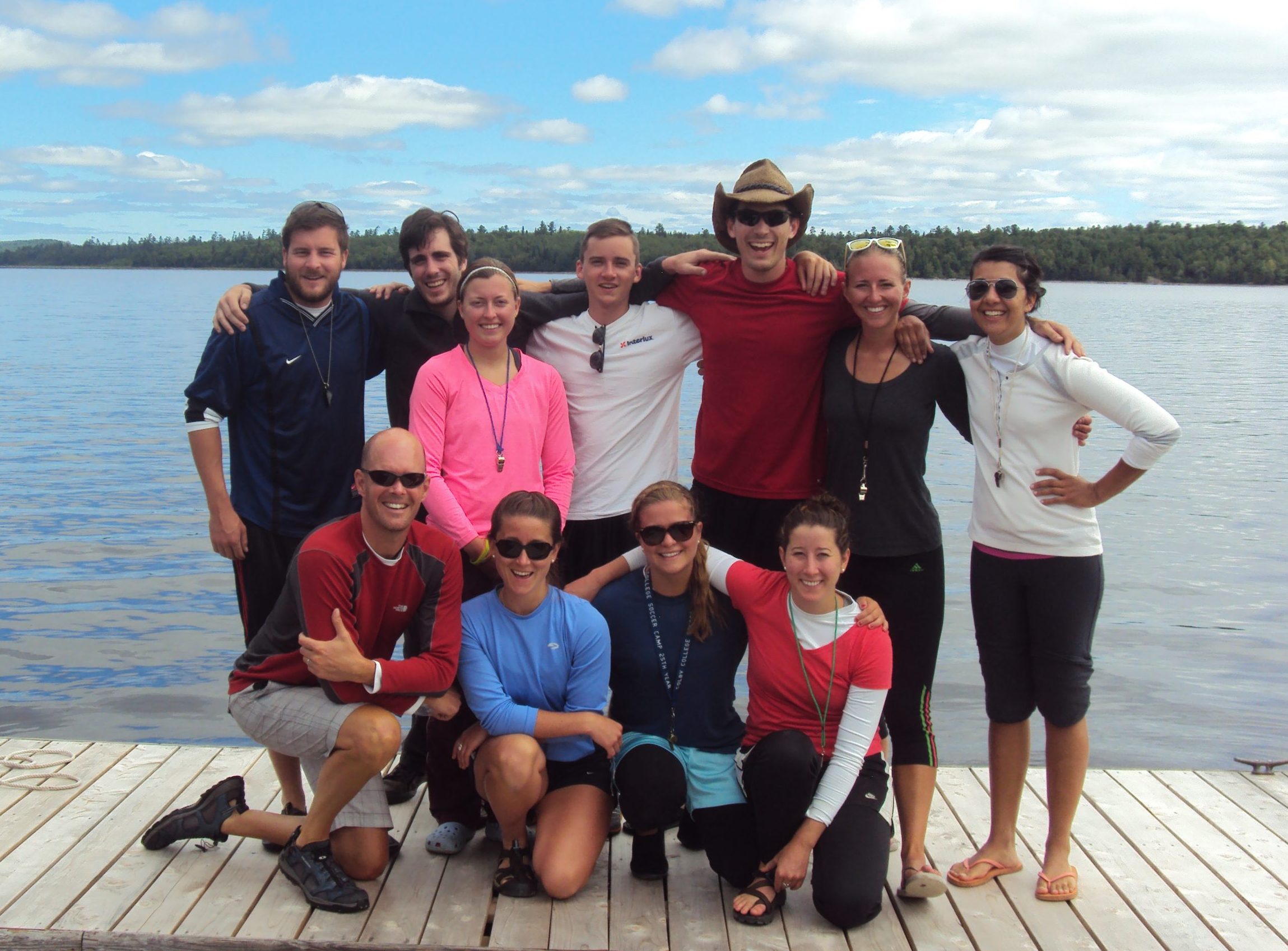
Participants in the Wild Alumni Program, 2013.
In May 1996, Trekkers expanded its program beyond Thomaston Grammar School, inviting St. George School students to participate. The goal was to allow these middle schoolers to form relationships with future high school classmates and led to the program dropping “Thomaston” from its name, becoming simply “Trekkers.”
In the years that followed, Jack’s nephew, Don Carpenter, interned at Trekkers while pursuing his Master’s degree in Environmental Education. Don offered a marsh ecology experience for 7th grade students and also proceeded to lead what was to become the first 3-Day Expedition to Acadia National Park for 7th-grade students. This program inspired his vision to build a comprehensive six-year youth development model. (Eventually, Don would assume the role of Trekkers’ first Executive Director after playing a crucial role in transforming the volunteer effort into its own independent non-profit organization.)
After his graduation in Fall 1998, Don discussed with Jack his vision of broadening Trekkers’ impact beyond the 7th grade program. He envisioned a long-term mentoring model with a cohort-based strategy, with small groups of students journeying through the program over six years.
The strategy incorporated different educational components, encouraged student and family ownership, and fostered a mentorship system where older students would mentor younger ones.This new strategy aimed to foster continuous guidance and support, enhancing personal and academic growth in participants. Jack and Don embarked on a journey to bring this comprehensive vision to life. Their discussions and planning aimed to expand the program’s scope while preserving its core values and impact. Their shared passion for youth development fueled their efforts, marking the start of an exciting chapter in Trekkers’ evolution.
By 1999, Trekkers brought on the bus nicknamed “Bessie” as its new mobile classroom – a bus that would enable students to explore Maine and broaden their horizons. Each year a new cohort was added and by 2003, Trekkers was serving six cohorts from seventh through twelfth grades. Trekkers added a leadership program along with behavioral, academic, and school attendance standards.
Finding Momentum
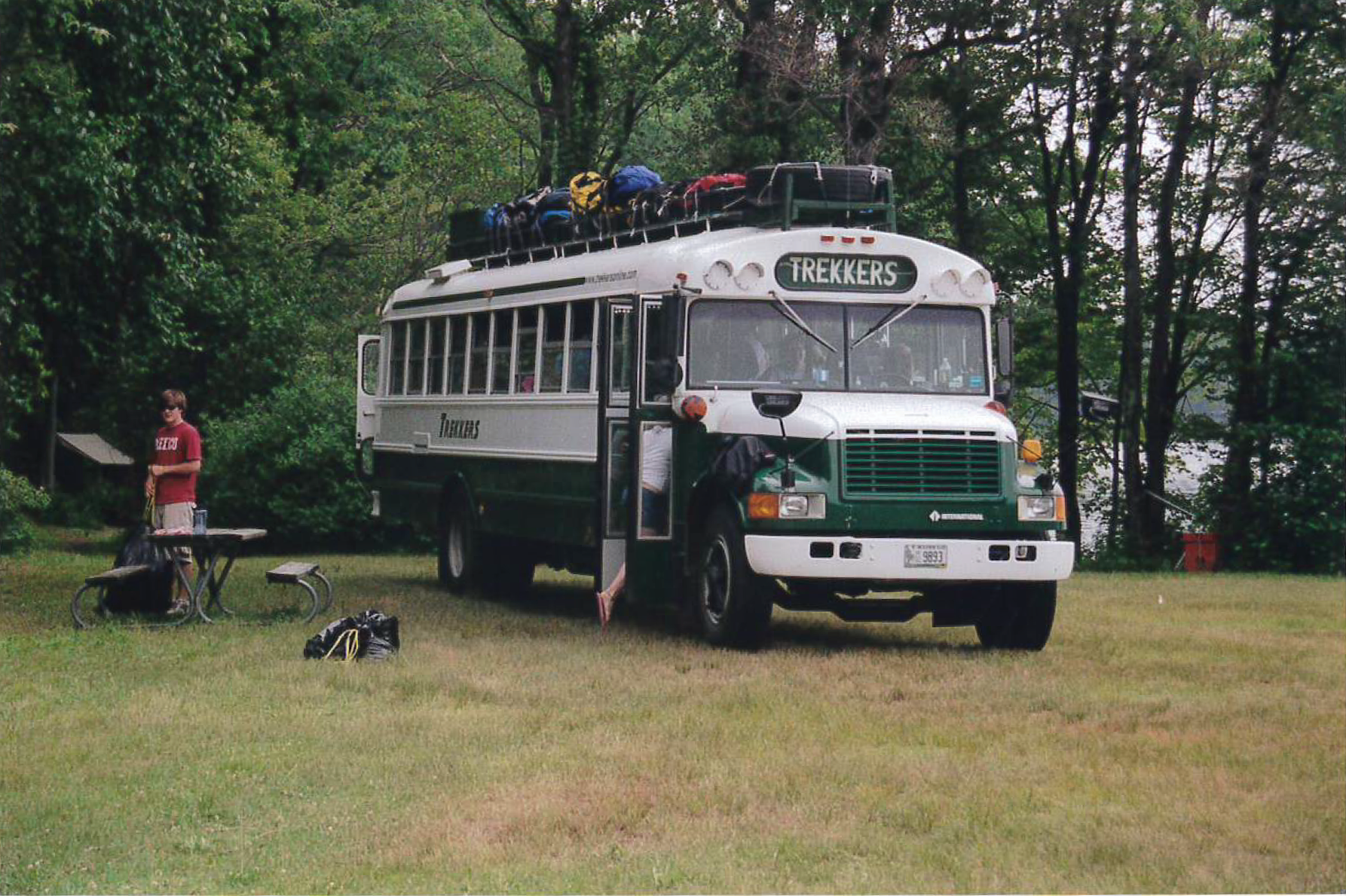
8th Grade Expedition, Danbury CT, 2007.
In the early 2000s, Trekkers began inviting AmeriCorps members. They played significant roles in helping scale the program and contributing to its growth and success. Trekkers’ model served as an inspiration for a new program designed for urban students, known as Urban Trekkers in Camden, New Jersey. Together, they established the Urban Exchange program, which continues to thrive today. Urban Trekkers continues to be present in locations such as Honduras, Africa, Miami, and North Carolina, showcasing the model’s adaptability and effectiveness in diverse urban and international communities and underscoring its broad reach and impact.
As demand for Trekkers continued to grow, the team strived to eradicate the waiting list and invite more students to participate. Over time and through successful fundraising and team expansion, Trekkers doubled the number of students served from 120 to 240 by 2016. This marked another transition as Executive Director Don Carpenter stepped down to join the Rural Futures Fund and Amie Hutchison, a seasoned leader in local youth development programs, stepped in as new Executive Director.
Scaling the Solution
As it continued to expand, Trekkers invested in program evaluation towards continuous improvement. In 2016, Trekkers worked with the Data Innovation Project (DIP) to build a comprehensive evaluation process, based on the work from the Partnership in Education and Resilience (PEAR). Several years later, with a foundation of data collected, Trekkers tapped DIP once again to build a longitudinal study that evaluates program effectiveness.
As results of program success and positive youth outcomes became evident, Trekkers sought to support youth in neighboring communities. The team formed the Trekkers Training Institute (TTI) and developed a set of training modules around underlying principles of the model that were created by Don Carpenter called the Trekkers Youth Programming Principles. These training modules are intended to be shared with other youth organizations interested in making a similar impact in their own programs and with their own students. To this day, these trainings serve as a connection point for youth professionals, offering opportunities to enhance their skills in positive youth development, while also providing a space for support, idea-sharing, and connections within the field.
Recognizing the model’s success, a youth development incubator called the Aspirations Incubator, utilized Trekkers’ Principles to expand the Trekkers model throughout Maine. This chapter signifies a significant milestone in Trekkers’ history, demonstrating the potential to replicate the model successfully in other communities.

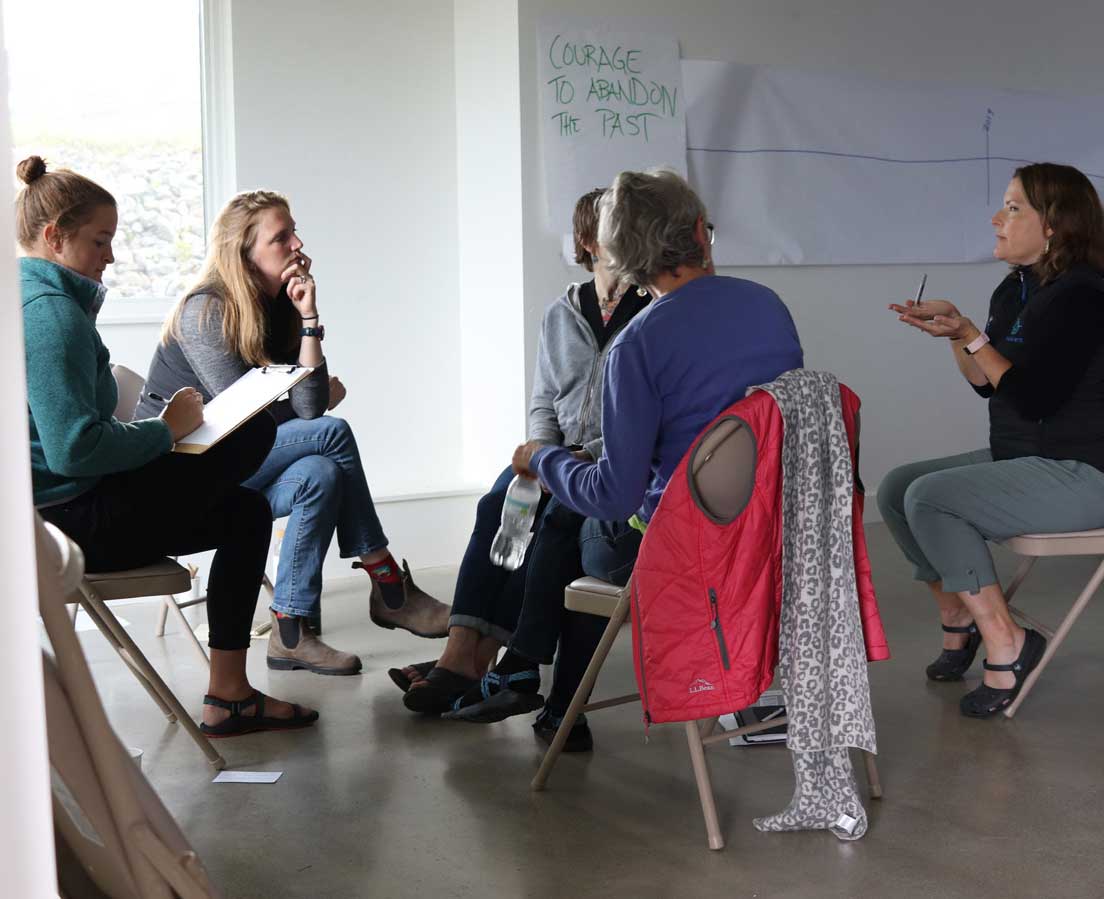
Trekkers Training Institute’s first Director, Meredith Lynt (far right), teaching a workshop, 2019.
The Road Ahead
Historically, Trekkers rented office space where employees worked and teams met throughout the year. In the fall of 2020, with interest rates at an all-time low, Trekkers purchased its first-ever building in Rockland, kicking off The Road Ahead Campaign for Trekkers’ Future. By the end of the campaign’s first year, with Trekkers Training Institute growth a top priority, TTI had worked with 20 organizations across Maine and New Hampshire.
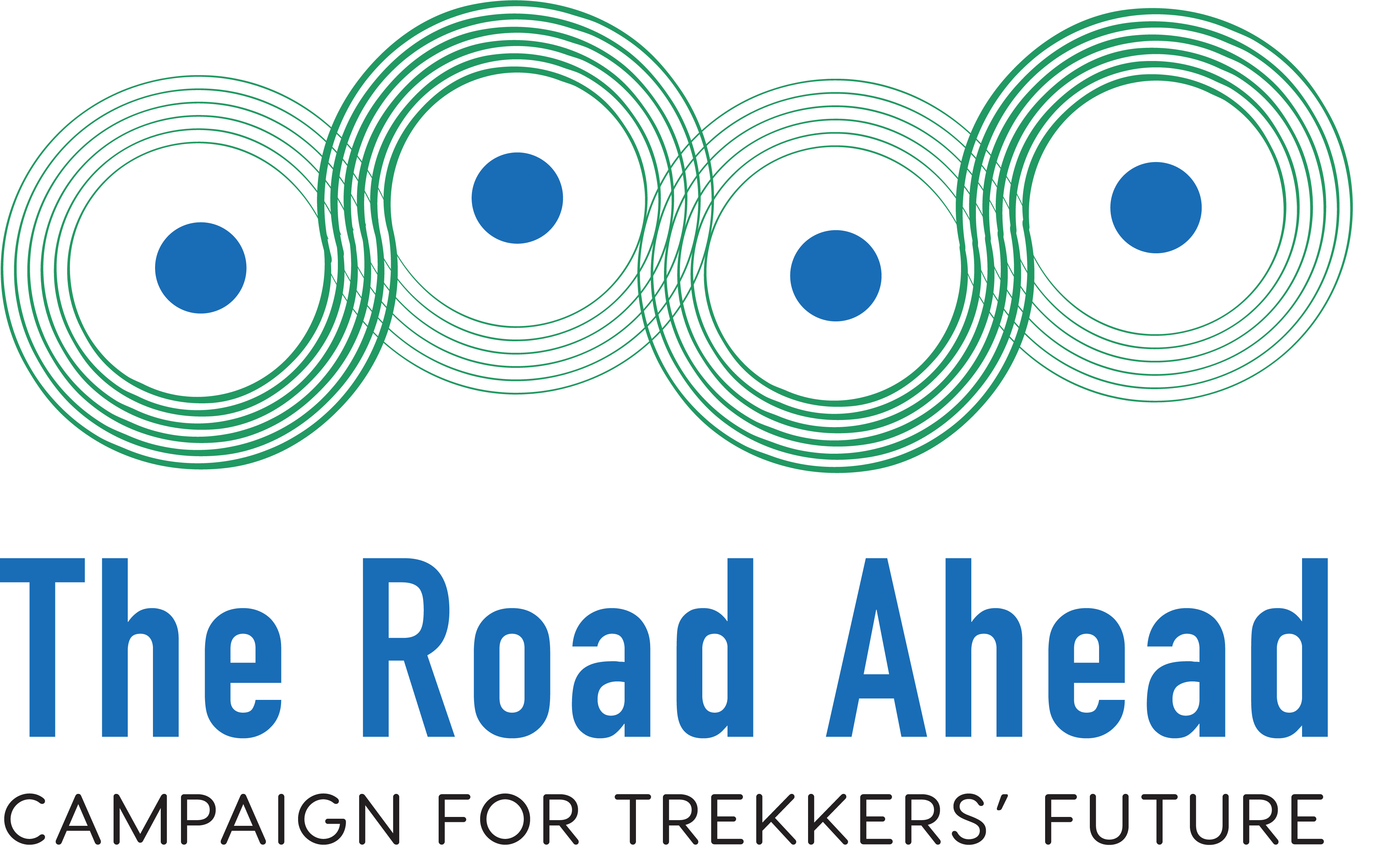
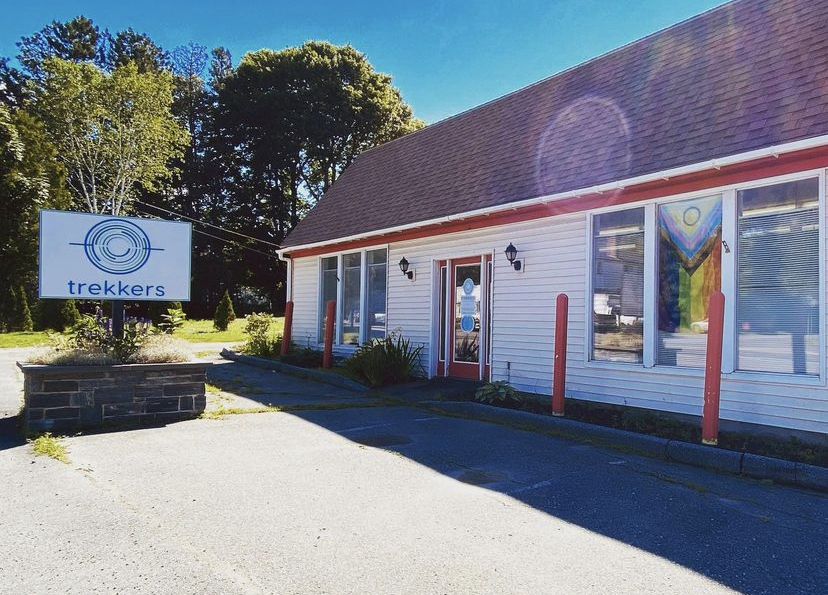
In the spring of 2020, the murder of George Floyd prompted Trekkers to organize around its diversity, equity, and inclusion efforts. A Diversity, Equity, and Inclusion committee was formed. With the support of funding, Trekkers hired Chrysalis Consulting to investigate the community response, build an action plan, and provide training to staff.
By 2023, Program staff received national certification in mentoring to youth with disabilities and began a long-term relationship with the National Inclusion Project. Trekkers updated gender policies and is in the process of auditing other policies.
In the Summer of 2023, Rockland police responded to another increase in incidents involving youth. Communities across the Midcoast community gathered to discuss, with the St. George School, The Landing Place, Trekkers, and many more who are volunteering to lead the effort and forming a collective known as the Midcoast Community Collaborative. Trekkers became a fiscal sponsor.
Later in 2023, DIP released findings from its longitudinal research study, demonstrating the positive impact Trekkers has on participants. The full report can be found here.
2024 marks Trekkers’ 30th year as an organization.
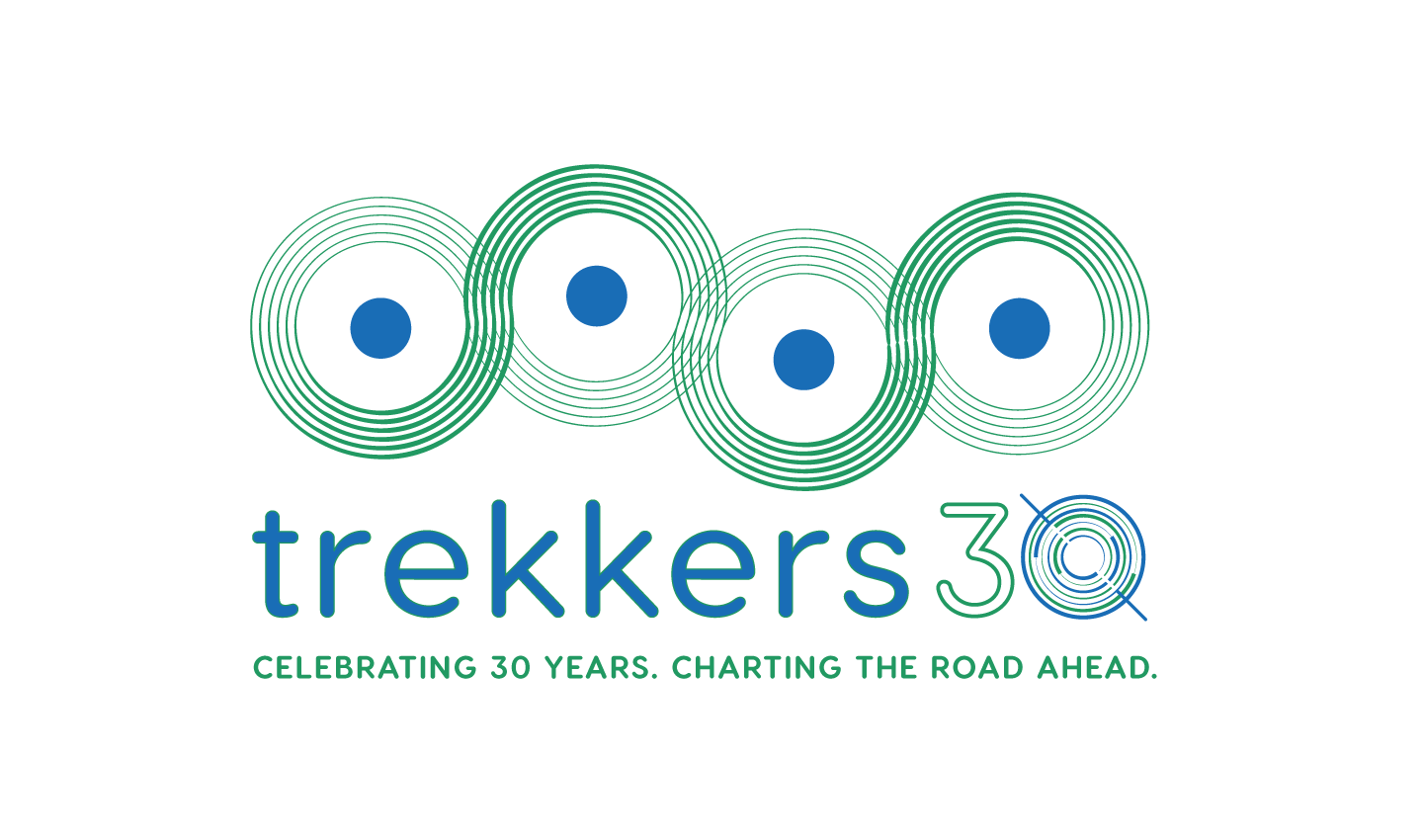
Sign up below to receive event announcements or share your own favorite Trekkers memory as we celebrate our 30th year.
